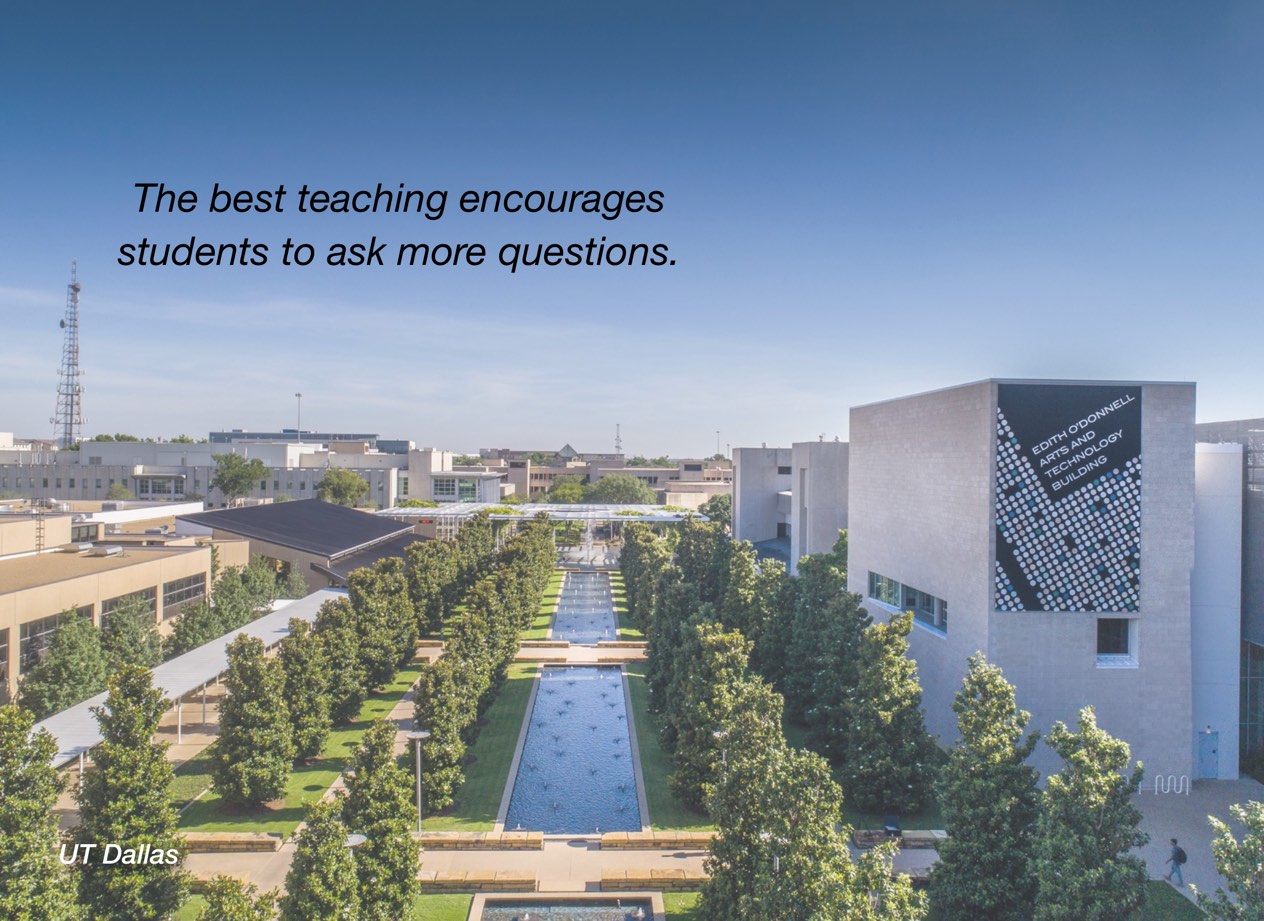41 Your Class Is Not Their Life


Beth Brunk-Chavez
Teaching is like a gas; it takes up all available space.
Boy, this is true. Especially when we first start teaching. We get so excited about the subject matter and dedicate lots of time to figuring out how to teach it and make sure the students learn it, and then to seeing whether or not they do.
But we might be a little shocked, maybe even a little hurt, when we later learn that our students don’t share the same enthusiasm for our class that we do – that to them learning in our class is not a gas, not exactly. That realization usually comes pretty hard for first-time teachers. This often happens around October or November. By this point, new teachers have put an immense amount of time into a class and have evaluated a couple of major projects. These enthusiastic instructors say things like, “My students clearly aren’t trying because I’m helping them as much as I can. Why won’t they just spend the time to do it well?”
Of course, there are a number of students who are able and willing to put in the extra time to be successful. Or maybe they just love your class. There may be quite a few others, however, who are also working, taking care of a family member, or just aren’t that interested (gasp!) in what you are teaching. Realizing this sooner rather than later helps us to adjust our perspective. Rather than simplifying the course or reducing the number of projects, we might rethink the way we approach the course content and assignments. Maybe there are ways to workshop ideas or projects in class to give students a running start. Maybe boring assignments can be given a facelift by connecting them to current events in the discipline. Maybe we have to come to grips with the fact that for some students, passing this class with a C is just fine on balance with working twenty-five hours a week and sharing home responsibilities with their younger siblings. Does this mean they are worse students than those who invest more time? Of course not. It simply means they have a life, and my class isn’t the most important thing in it. I can live with that.


Chapter 41Commentary: Catherine Ross
“When I read Beth Brunk-Chavez’s title – “your class is not their life” – I heard myself intone “Amen.”
Students come to the universities in the UT System for many different reasons. Especially if students are the first in their family to give higher education a shot, they may not have a very clear idea of why they need to be in college, let alone why their professors think they should be in college. I hope they realize before they leave our universities, however, that becoming educated is a life-long process and that their professors are trying to help them learn about themselves, to expand how they think, and to guide them toward broader horizons. But if some students just need the credit in my class to “get out of here,” and if they don’t mind doing just enough to get by, so they can get home to their children or to the job that makes it possible for them to be in college, like Beth, I get it. Still, I will keep on trying to give even these students more than they expected; and I hope that some of them will be pleasantly surprised. ”

